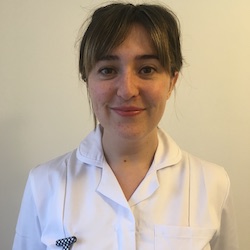In this inspiring video, Student Nurse Lillie goes into what has led her to pursue a career as a Community Nurse, and debunks some common myths surrounding nursing in a community setting.
Hello, my name is Lillie and I’m a final year Student Nurse from Newcastle. And today I’m going to talking about the common misconceptions about community nursing.
What Is A Community Nurse?
A Community Nurse is a Registered Nurse who provides care and support to individuals within their own homes, GP clinics, care homes, villages, and communities across the United Kingdom.
Community Nurses must have excellent communication and interpersonal skills, time management skills, be resourceful and competent to meet the needs of patients. Community Nurses offer 24/7 care within communities through out of hours services.
Without the help and expertise from Community Nurses, many individuals within the United Kingdom would be unable to live at home. They play an extremely important role within our society, and I feel they are often overlooked.
Why I'm Becoming A Community Nurse
I’ve recently been offered my first ever nursing position as a Community Nurse and I couldn’t be more excited.
I’ve always been drawn to community nursing as a career ever since I decided I wanted to be a nurse. And this is because I was inspired by the care that was provided to my late nanna.
The Community Nurses that provided her end-of-life care in her own home, were outstanding. They were so genuine, knowledgeable, competent, and holistic. And although they no doubt had a busy schedule, they always made time for my family and nanna’s concerns and needs. The Community Nurses who looked after my nanna are still honestly some of the best nurses I’ve ever come across.
I wanted to become a Community Nurse because of how well those nurses cared for my nanna and my family; it was done right for me, so I want to make sure it’s done right for other people.







About this contributor
Student Nurse
I'm Lillie, I'm an ex-pastry chef and current student nurse! I have an interest in ME/CFS, long Covid and a passion for helping people live well with chronic medical conditions. My ambition is to one day be a community nurse! In my spare time I love to make chocolates for friends and family.
More by this contributorWant to get involved in the discussion?
Log In Subscribe to comment